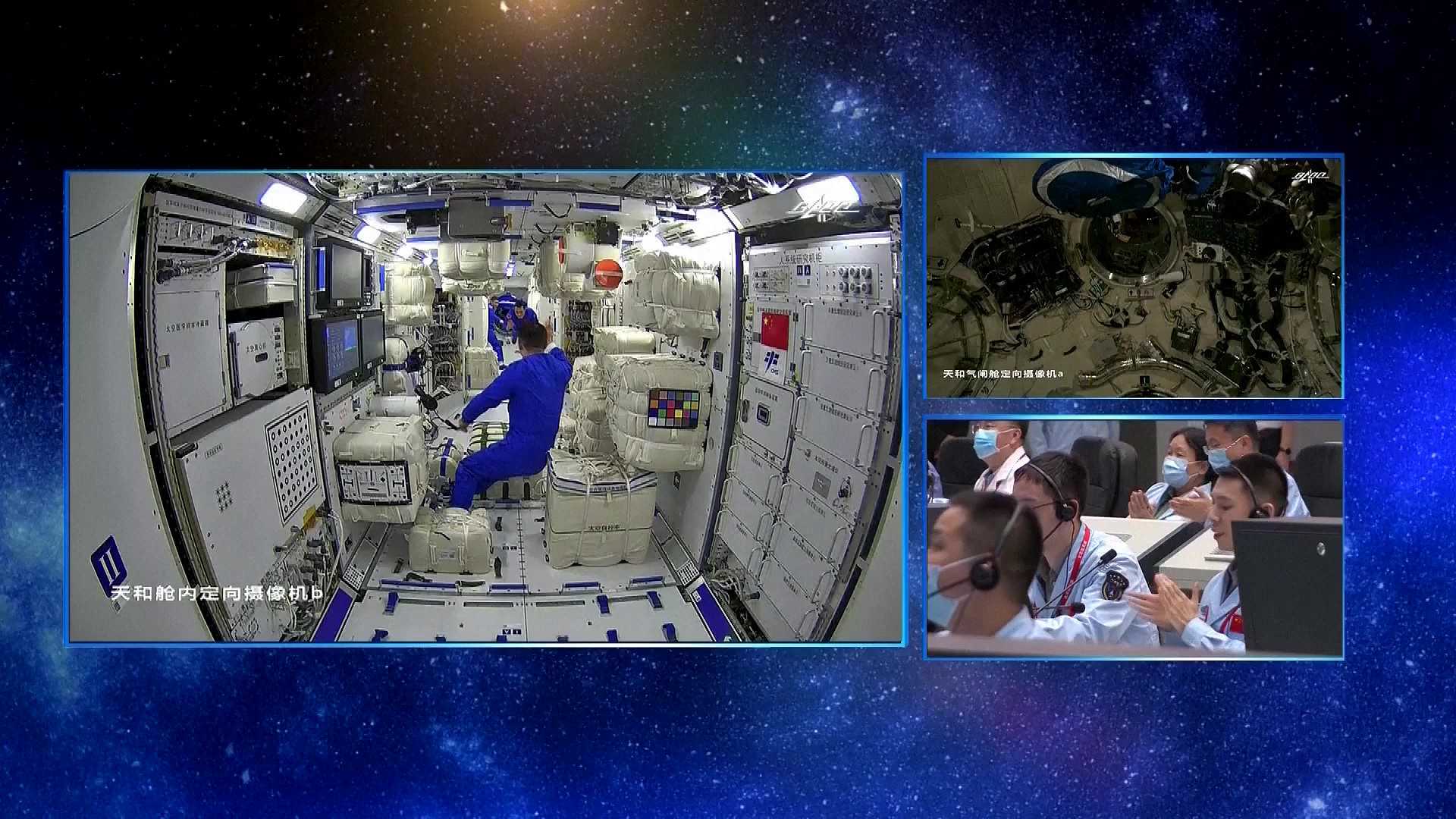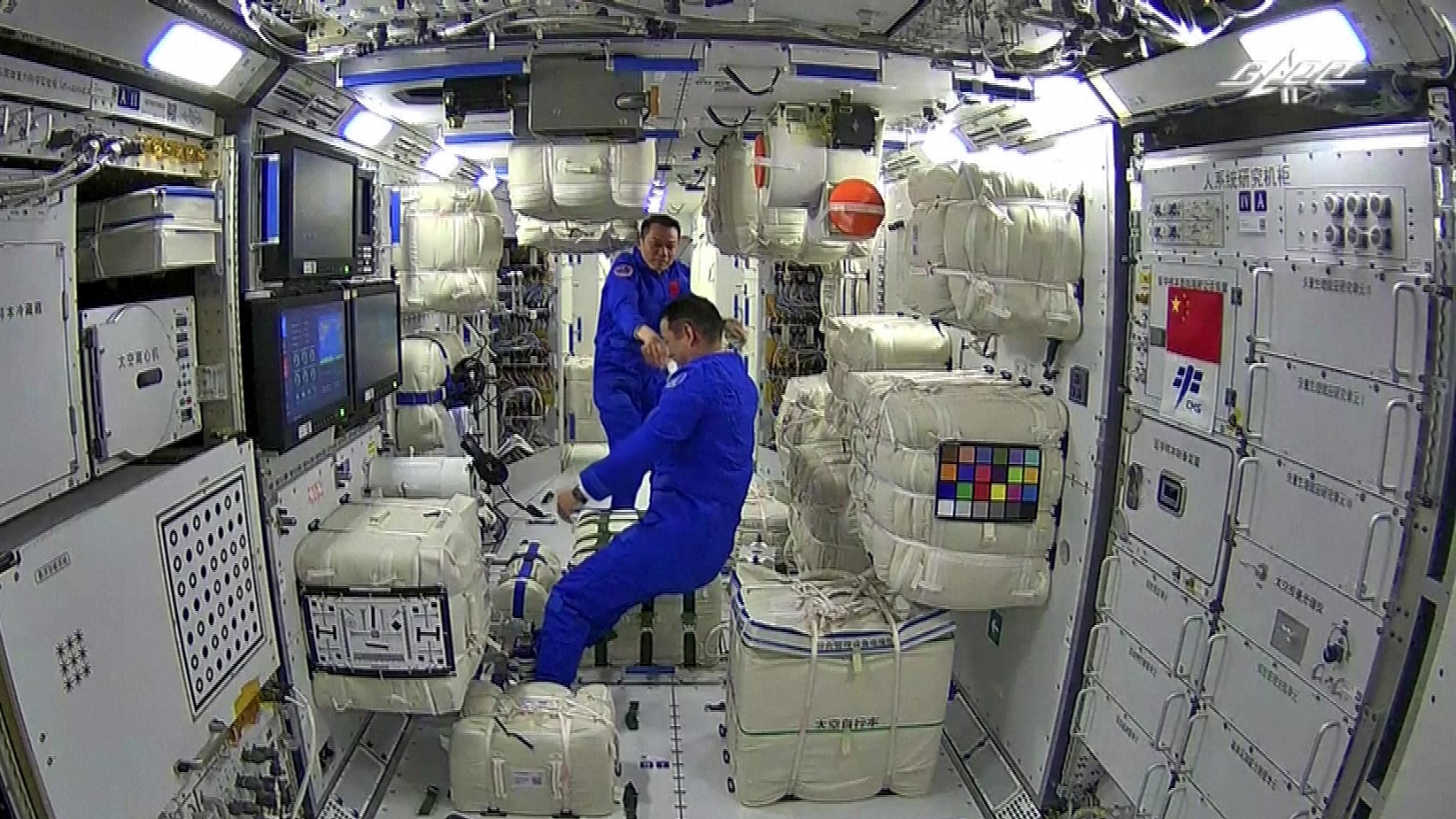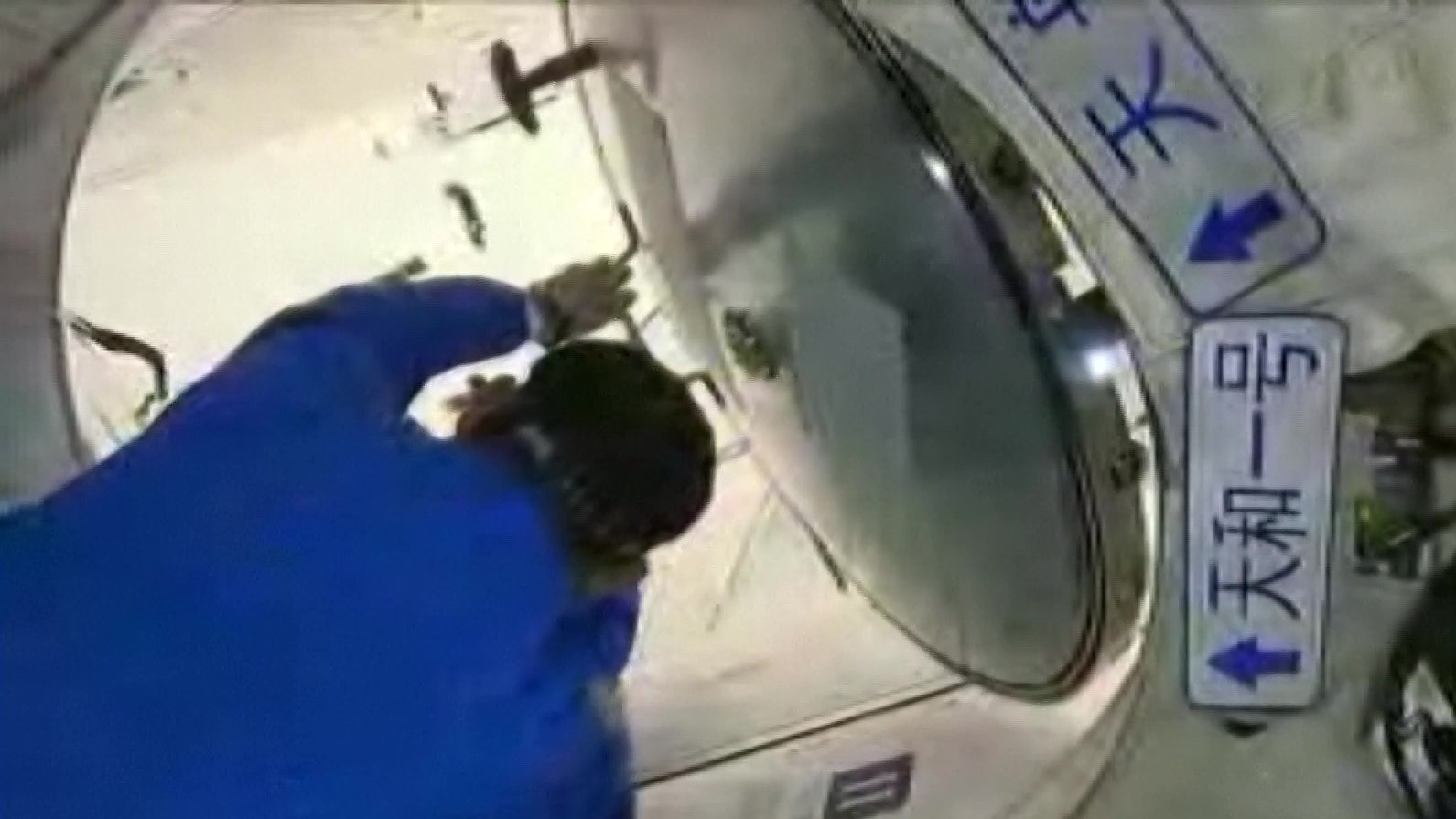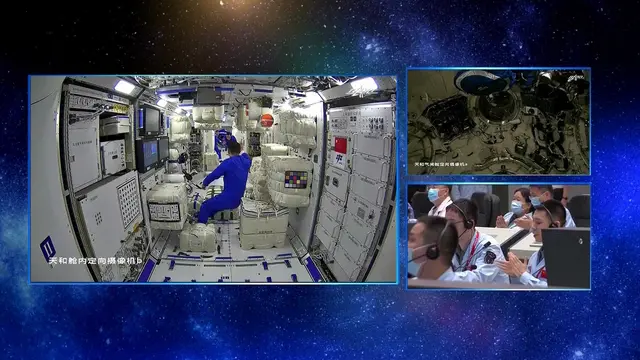
China's three astronauts enter the Tianhe core module, June 17, 2021. /CFP
Three Chinese astronauts, also known as taikonauts, are now stationed in the core module of China's space station about 400 kilometers above Earth. Here's a quick guide to what the trio are doing and what their conditions are like.
What are they doing?
Setting up home is always the first step when starting life in a new environment.
As the first inhabitants of China's space station, the trio "have a lot of tasks to do after entering the core module. For screws alone, they have over 1,000 to remove," Yang Liwei, deputy chief designer of China's manned space program, said at Peking University on Friday.
Their main tasks during the first week are to install facilities, including information communication, living, catering and sanitation, so as to lay the basic foundations for a long-term residence in orbit, according to Sun Jun, deputydirectorof theBeijingAerospace Control Center.
After that, the astronauts will carry out space science experiments and in-orbit training, particularly for extravehicular activities.
How is the accommodation?
01:34

The astronauts' food is savory, comprising more than 120 different types, including a lot of traditional Chinese dishes.
"The taikonauts' diet barely repeats, taking one week as a cycle," said Huang Weifen, chief designer of the astronaut system of China's manned space program.
The food is prepared for their tastes as they were surveyed for their preferences before the mission began, Huang added.
"The space station kitchen is equipped with food heating equipment, so that they can enjoy warm food as well," she said.
Besides appealing food, the space station also provides a cozy environment for rest.
It's about 23 degrees Celsius inside the space station and the temperature can be adjusted, said Huang. The astronauts sleep in fixed sleeping bags in case of floating.
On the day they arrived in space, the trio worked until after 11:30 p.m. Beijing time and didn't go to sleep until midnight. They woke up at 6:00 a.m. on June 18, half an hour earlier than the usual wakeup time despite the hard work, according to Huang.
"They had quite good sleep for the first night in space," said Huang, after communication with the trio. "We need to evaluate their sleep quality regularly, which is also an indicator of their health status."
What's the astronauts' daily schedule?
00:31

The trio in the core module will keep to the same timetable as they followed on Earth.
In space, the sun rises and sets more than a dozen times a day, which can disrupt the sleep-wake cycle, said Jiao Weixin, professor of the School of Earth and Space Sciences, Peking University. So inside the space station, there are clocks and the lights that adjust automatically to remind the astronauts when to sleep.
Also, a synchronized timetable helps the ground crew keep an orderly routine, said Wu Ji, researcher with the National Space Science Center of Chinese Academy of Sciences.
"Except for some experiments that require work at night as well, the taikonauts follow a normal schedule most of the time, as do the ground personnel for monitoring and control service support," said Wu. "A normal schedule is conducive for a long-time stay in the space station, and beneficial to their health."
The ground personnel usually start work at 8:00 a.m., when the astronauts will communicate with them about the work plan of the day, said Huang.
The two sides will also communicate at night to review the day's performance and the next day's plan.
"Such communication is necessary and routine," said Huang.
Do they work every day?
Nope. Every Sunday is rest time for the astronauts. They will be free from work and can do what they like, such as reading or listening to music, according to Huang.
The crew took some personal belongings with them for their three-month stay in orbit, including photos and video clips of family members, mascots and some secret items for demonstrations.
But one of the most popular modes of entertainment in space is "porthole overlooking," which means gazing across the vast universe and the blue planet, as well as enjoying the frequent sunrises and sunsets.
 简体中文
简体中文

